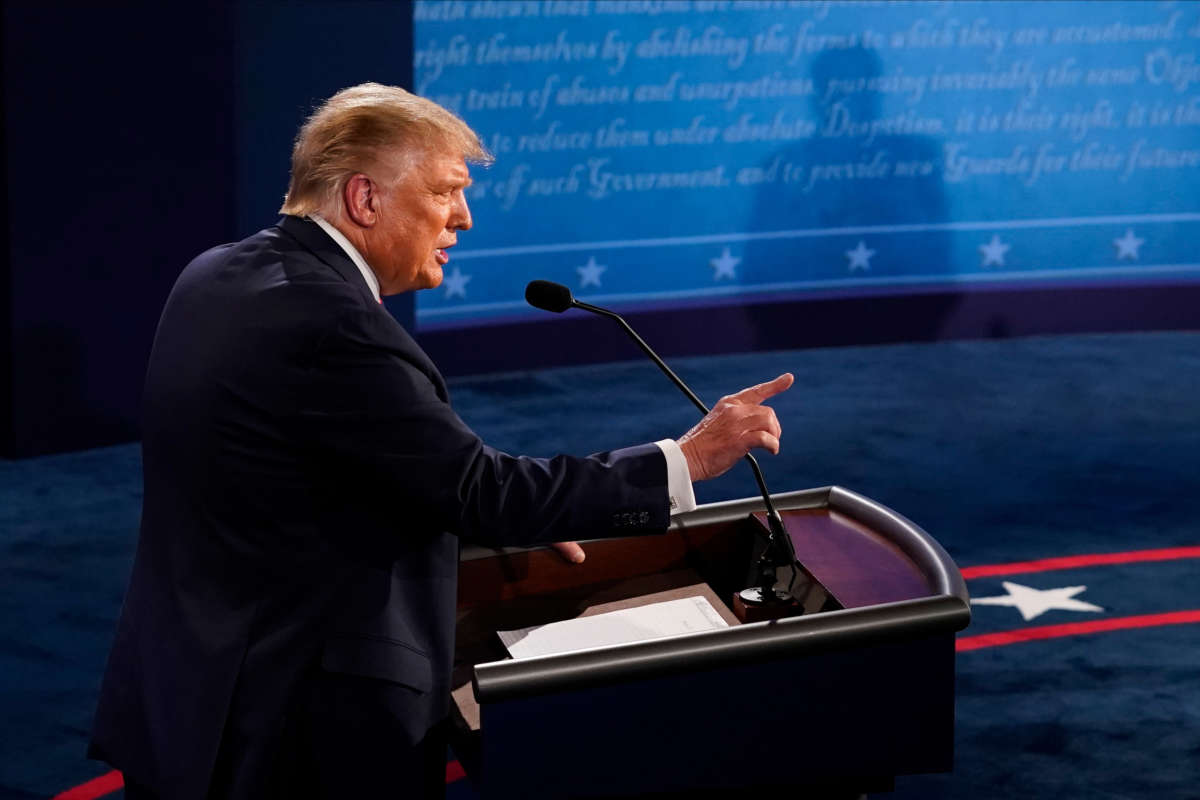Did you know that Truthout is a nonprofit and independently funded by readers like you? If you value what we do, please support our work with a donation.
On Thursday, the Republican National Committee (RNC) announced that it has unanimously voted to withdraw from the Commission on Presidential Debates, which has been responsible for overseeing presidential debates since the 1980s.
The RNC says that, from now on, it will require candidates to sign a pledge that they won’t participate in general election or primary debates unless the debate has been sanctioned by the party, according to the Wall Street Journal.
This is a significant decision and an escalation from President Donald Trump’s previous grievances with the debate commission. The vote means that unless there is a considerable shakeup in the way that presidential debates are held, Republicans will not participate in presidential debates the way they have been run for decades — though the RNC says that it won’t be pulling candidates out entirely.
RNC Chair Ronna McDaniel said in a statement that the RNC believes, without evidence, that debates have been “biased” against Republicans. The committee will work to “find newer, better debate platforms.”
The debate commission was formed as a nonprofit in 1987 with sponsorship from both Republican and Democratic parties.
The RNC has signaled in the past months that it will be withdrawing candidates from debates. Earlier this year, the committee sent a letter to the debate commission threatening to leave if the commission didn’t reorganize its format.
Trump regularly complained that debates were biased against him; in 2020, he withdrew from the second presidential debate with now-President Joe Biden, which was slated to be held virtually after Trump contracted COVID-19. At the first debate,Trump had taken issue with moderator Chris Wallace, then a Fox News anchor, and talked over both Wallace and Biden nearly the entire time.
Before Trump, Republicans had been complaining for years that the debates were biased; in 2012, Republicans took issue with the fact that a debate moderator corrected Mitt Romney during a debate.
Ironically, in their current TV-friendly format, debates are actually biased toward Republicans, political commentators have pointed out. The current format allowed Trump to hog speaking time during the Wallace-moderated debate and gave a huge litany of lies a legitimized platform.
Trump essentially used the debates to lie about the climate crisis, health care, election fraud, and other issues; although fact checkers — who often carry a right-wing bias at corporate news outlets — had flagged many of Trump’s lies as false, not all viewers follow the fact checkers as they watch.
Left-leaning commentators have long taken issue with the current presidential debate format, which they argue is more about spectacle for cable news audiences than about substantial policy debates — though the current format is still preferable to whatever the GOP could come up with, they say.
Press freedom is under attack
As Trump cracks down on political speech, independent media is increasingly necessary.
Truthout produces reporting you won’t see in the mainstream: journalism from the frontlines of global conflict, interviews with grassroots movement leaders, high-quality legal analysis and more.
Our work is possible thanks to reader support. Help Truthout catalyze change and social justice — make a tax-deductible monthly or one-time donation today.
